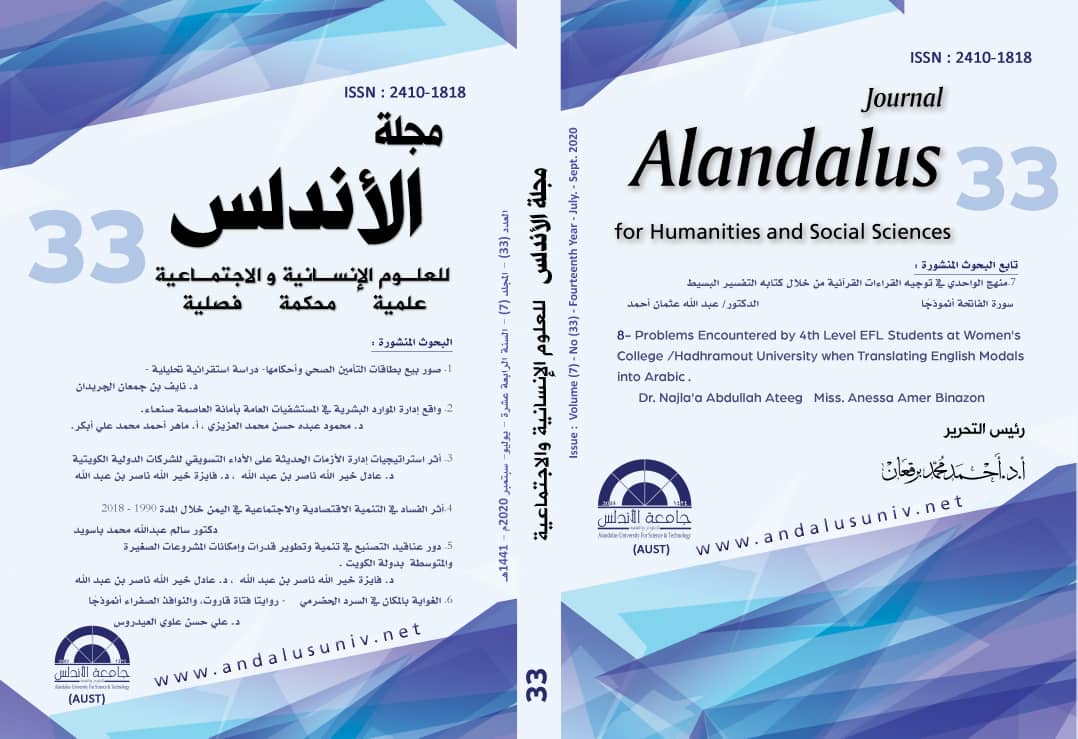أثر الفساد في التنمية الاقتصادية والاجتماعية في اليمنخلال المدة 1990 - 2018 دكتور سالم عبدالله محمد باسويد (
محتوى المقالة الرئيسي
الملخص
يهدف البحث إلى دراسة ظاهرة الفساد ومراحلها
ومظاهرها المختلفة في اليمن خلال المدة 1990 -
2018 . وتوصل التحليل الإحصائي أن اليمن من
الدول الأكثر فساداً، إذ احتلت المراتب الأخيرة
عالمياً وعربياً لاستشراء الفساد في مفاصل الدولة
السياسة والاقتصادية والعسكرية، وأن رأس النظام
السياسي هو جذر الفساد وراعيه وحاميه. ووجد
الباحث دليلاً من التحليل القياسي على أن الفساد
يؤثر معنوياً وسلباً في النمو الاقتصادي، حيث
أكدت الاختبارات صحة الفرضية الأولى في أن
الفساد يعيق النمو الاقتصادي وأن زيادة درجة
الفساد بنسبة 1% تؤدي إلى انخفاض النمو
الاقتصادي بنسبة 1.66 %. وأكدت الاختبارات
صحة الفرضية الثانية في الدلالة المعنوية لمتغير
الفساد فيما دحضت العلاقة العكسية بين الفساد
والاستثمار، وأن زيادة درجة الفساد بنسبة 1% تؤدي
إلى زيادة معدل الاستثمار بنسبة 1.5 %. وأكدت
الاختبارات صحة الفرضية الثالثة في الدلالة
المعنوية لمتغير الفساد فيما دحضت العلاقة
العكسية بين الفساد والإنفاق التعليمي، وأن زيادة
درجة الفساد بنسبة 1% تؤدي إلى زيادة معدل
الإنفاق على التعليم بنسبة %0.5 . وأوصى البحث
بضرورة توافر الإرادة السياسية وتفعيل الشفافية
والمساءلة للسلطات وتحقيق الاستقرار السياسي
بوصفها مفاتيح للنهوض بالتنمية الاقتصادية
والاجتماعية.
الكلمات المفتاحية: الفساد، التنمية الاقتصادية،
التنمية الاجتماعية، اليمن
أثر الفساد في التنمية الاقتصادية والاجتماعية في اليمن
خلال المدة 1990 - 2018
The impact of Corruption on Economic and Social development in YemenDuring the period 1990-

